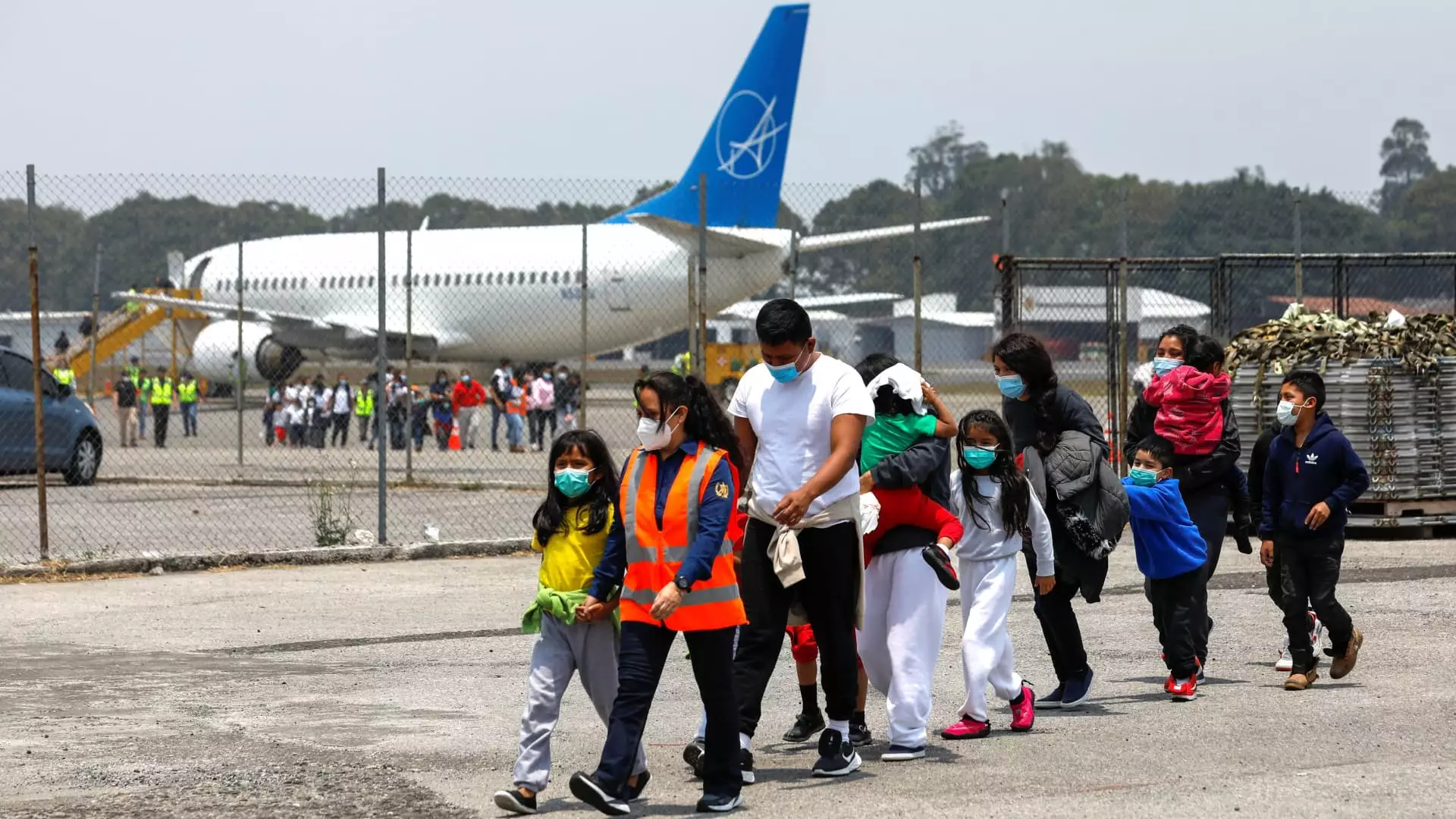In a deeply troubling turn of events, an American federal judge recently took a striking stand against the Trump administration’s immigration policies, exposing the stark flaws within a system characterized by haste and insensitivity. The ruling centered around a Guatemalan man, identified only as “O.C.G.,” who was deported to Mexico—a country from which he had originally fled due to his sexual orientation. The judge’s decision not only underscores a significant judicial rebuke of the administration’s practices, but it also brings to light the harrowing narratives of marginalized individuals caught in the crosshairs of a conflicting immigration agenda.
What’s particularly alarming is the revelation that officials had admitted to an error concerning O.C.G.’s case, indicating a lack of proper communication and protocol amongst Immigration and Customs Enforcement (ICE) officers. The acknowledgment of such mistakes is shockingly inadequate, considering the gravity of the situation faced by migrants in perilous circumstances. O.C.G. was not just a statistic in a government ledger; he was a man fighting for his very existence, living in fear of death threats due to his sexual orientation—a reality the judge recognized when he referred to O.C.G.’s situation as a “horror.” This testimony illustrates an alarming pattern within the Trump administration: a systematic oversight that gives rise to dire consequences for those on the margins of society.
Constitutional Rights vs. Political Agendas
At the heart of Judge Murphy’s ruling lies a non-negotiable principle: due process. As he asserted, due process “is, in some sense, a binary – one either receives what the Constitution requires, or one does not.” This foundational element of American justice seems to have been swept aside in favor of an aggressive immigration strategy purported by Trump and his administration. The ruling serves as a critical reminder that political posturing should never come at the expense of human dignity and legal rights.
In the case of O.C.G., the trajectory from Guatemala to the United States and then illegally into Mexico amplifies a question that should resonate deeply within the national consciousness: What does it mean to be safe in America? For many migrants, particularly those belonging to the LGBTQ+ community, the fear of persecution does not dissipate simply upon entering the U.S. Instead, they carry with them the traumas from their home nations, seeking refuge and security—only to be cast into a dangerous limbo.
This judicial pushback is significant, given that the decision emerged from an administration notorious for its hardline immigration policies. It reflects an ongoing struggle to align federal enforcement mechanisms with constitutional protections. While one might find solace in the fact that the judiciary is willing to challenge executive authority—illustrated by this recent case—the situation amplifies an urgent need for comprehensive immigration reform that genuinely considers the vulnerabilities of different populations rather than categorizing them merely as “illegal.”
The Broader Implications of an Immigration System in Crisis
The ramifications of flawed deportation decisions extend beyond individual cases; they propagate a culture of fear among those seeking asylum in the United States. For many, the choice between returning to their home countries—where they risk violence—and languishing indefinitely in detention centers in the U.S. becomes a twisted form of psychological warfare. O.C.G.’s dreadful choice to return to Guatemala signifies not just a personal tragedy, but also a broader commentary on the dehumanizing mechanisms that underpin America’s immigration system.
This case is part of a disturbing trend wherein the very fabric of humanitarian aid is dismantled in favor of an aggressive enforcement strategy. In a context where individual stories are frequently overshadowed by algorithmic deportation quotas and political soundbites, it is imperative for the legal system to act as a bulwark against government malfeasance. The need for continued vigilance and advocacy has never been more urgent, underscoring the essential role of the courts in safeguarding not just procedural rights but also the fundamental humanity of those who seek a safe haven.
As the struggle for immigrants’ rights continues, it becomes clear that citizenship and safety are not only about legal status; they stem from the recognition of each individual’s inherent worth. Until there is a systemic shift in how these stories are perceived and handled, the horror will persist—one bureaucratic failure at a time.


Leave a Reply